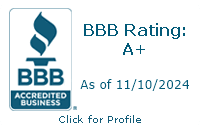Are You Prepared For Retirement?
 Unlike employees, business owners have greater control over their financial future and can proactively plan for the type of lifestyle that they desire when retiring. Where most employees generally wonder, “What can I do with what I have?” Business owners, in contrast, think in terms of, “What can I do to obtain what I want?”
Unlike employees, business owners have greater control over their financial future and can proactively plan for the type of lifestyle that they desire when retiring. Where most employees generally wonder, “What can I do with what I have?” Business owners, in contrast, think in terms of, “What can I do to obtain what I want?”
Mental Preparation
Many entrepreneurs tie up nearly 80% of their net worth in their companies. Thus, it is important that they run their businesses every day as though they’re for sale. By focusing on controlling costs and producing bottom line profitability, owners are more likely to develop entities that are desirable to purchase. With proper planning, the profits from sale of such businesses can help owners achieve their retirement needs and wants.
Most business owners prepare for retirement one of three ways, with careful planning, late planning, or taking the pure luck approach:
- Careful planning involves setting a goal, then making investment and business decisions that lead toward that goal every step of the way.
- Late planning is one day realizing that retirement is a few years off and looking at the marketability of the company at that point. Some strategies can be used, but there is little time for establishing a track record of business growth.
- Pure luck is never focusing on the company from a buyer’s point of view. When it comes time to retire, the owner simply hopes that someone, somewhere, will want to purchase it.
The Exit Strategy Planning Team
Because of the complexity of the retirement planning process for small business owners, it is important to put together a team of expert advisors. Members should include:
- Attorneys (to handle general business issues, estate planning and taxes);
- A certified public accountant;
- A stockbroker;
- A personal and/or commercial banker;
- A financial planner;
- An insurance agent;
- A real estate agent (for home and the business);
- A benefits advisor (to help devise a personal retirement plan, as well as company employees’ plans);
- A business valuator (to help determine the appraisal value or worth of the business); and
- A business broker or an investment banker (companies valued under $20 million often use a business broker, while larger companies involve an investment banking firm in the sale of a business).
When building a dream home, a person does not individually contact a carpenter, plumber, electrician, mason and a roofer and say, “Build me a house.” Rather, there needs to be an architectural plan and a general contractor to coordinate the trades. The synchronization of skilled specialists, likewise, is important for building the ultimate retirement plan.
One way to get valuable coordination is to employ the services of a consultancy that offers all of these services under one roof. Then, the various team members are communicating with one another to produce a unified exit planning strategy for a client.
What is actually sold?
The sale of a privately held business either involves the purchase of the company stock or the business assets. There are advantages and disadvantages to each.
A seller may prefer to sell the stock of the company, because:
- Any liabilities or potential litigation stay with the company. The former owner is off the hook, and the stock purchaser assumes that liability.
- There is a tax-savings advantage. The owner usually only pays 5% on the appreciated value.
A buyer may prefer to buy the assets of the company, because:
- There is a stepped-up basis in the depreciation. The buyer is able to depreciate assets, such as equipment, all over again from his purchase price (when purchasing stock, there is no additional depreciation).
- Company liabilities are not transferred. By purchasing only equipment and inventory, the new owner avoids the liabilities or potential litigation.
Be aware that a buyer may not be interested in just buying the assets of a company, if that company holds valuable contracts and/or licenses (say, to do business in various states or with various vendors). If the buyer were to purchase the stock, in this situation, the company would continue to exist, allowing those licenses and permits to continue to exist, as well.
Why plan ahead?
Business owners who immerse themselves in their operations six or seven days a week, for years, might have a difficult time leaving it. That’s why it can be helpful to think in terms of retiring ‘to’ something, rather than retiring ‘from’ something. It not only creates a certain lifestyle to look forward to enjoying, it also helps establish solid goals on which to base a suitable financial plan and exit strategy.
While small business owners often consider passing on their companies to their children, they usually end up selling to third parties or closing down. That’s why it’s important for a firm to be built in a way that increases its salable value for funding the owner’s retirement.


